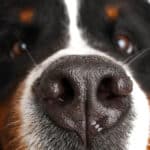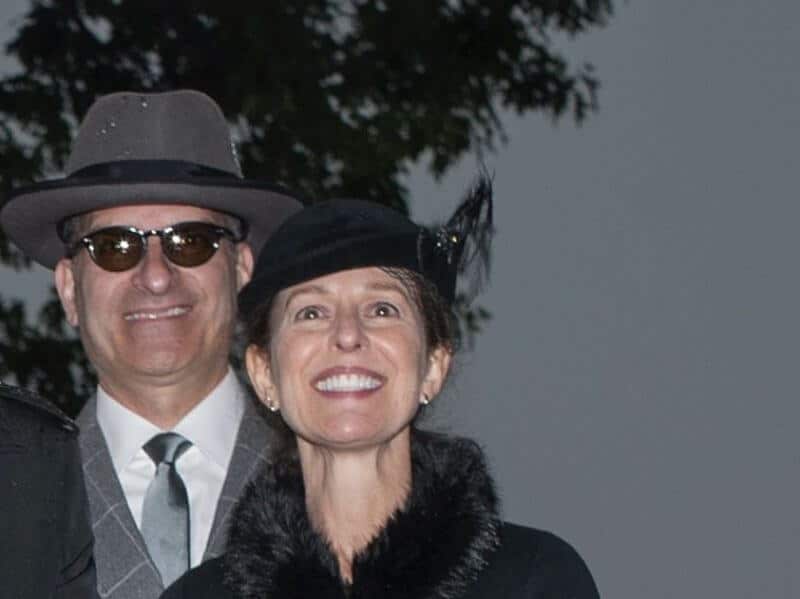
Home » Revelation Knaani Canaan Dogs | David Golden & Cynthia Dodson

We are Cynthia Dodson and David Golden of Revelation Knaani Canaan Dogs in Marshall, Virginia. We have 25 years of experience with one of the most ancient and fascinating breeds—the Canaan Dog. Our website is www.thecanaandog.com.
Our best-known dogs are “Avi,” MBIS MRBIS MBISS MOHBIS GCHP Pleasant Hill Avram Of Carters Creek CA FCAT3 CGC TKN, the only Platinum Grand Champion and top Group-winning Canaan Dog in history, and “Anni,” OH Platinum GCHS Pleasant Hill Anni Aharona Of Carters Creek ATT CGC, the No. 1 lifetime owner-handled Canaan Dog. In 2023 alone, dogs we bred were the BOB, BOS, and Select at both Westminster and the Canaan Dog Club of America National Specialty.
The Canaan Dog breed today is in danger of extinction. In 2022, the breed was 187th in popularity of breeds fully recognized by the AKC. There are only a handful of breeders in the US, and fewer than a dozen litters are whelped each year. In addition, after decades of work to establish a relatively consistent breed type, significant aberrations, including coat colors not contemplated in the Breed Standard, are becoming increasingly prevalent. Given that the Canaan Dog is a natural breed that shares many characteristics with free-living dogs throughout the Middle East, deviations from the Standard threaten the very integrity of the breed.
On a more positive note, the breed is a relatively healthy one. US breeders generally (but not always) are diligent in health testing their breeding animals, and Canaan Dogs are usually healthy and long-lived. Given the small gene pool of this rare breed, we have found it important to both import and export breeding dogs.
Pet homes are typically available for Canaan Dogs. Although the demand is small, so are the number of puppies whelped, and families often wait months or even years for one.
Very few Canaan Dogs actively participate in Conformation. While showing a rare breed is often an unopposed ticket to the Group, many judges are hesitant to award Canaan Dogs because they see so few throughout their careers. That said, so far this year, six different Canaan Dogs have placed in the Herding Group, which is heartening and, at least in part, a testament to the efforts of quality dogs and their hard-working owners over the past decade. Given the small number of dogs showing, majors are very hard to find anywhere in the US.
Because Canaan Dogs were not developed by man for a particular job, but rather by nature to survive in a harsh environment, they are highly versatile and can excel in performance and other events. As with Conformation, however, the numbers participating are very small.
We all know about the challenges facing the dog show community, including the aging of the participants, the ever-increasing costs, the unfashionability of purebred dogs, the nepotism and cliquishness and resulting conflicts of interest, the hyper-competitiveness leading to the deterioration of comradery and sportsmanship, and so on. In many respects, these challenges merely reflect similar changes throughout society and will therefore be very difficult to fix. But notwithstanding all that, we are encouraged by the selflessness of a percentage of the community in teaching and mentoring newcomers interested in becoming more involved in the show world. Thanks to their efforts, we may just survive.